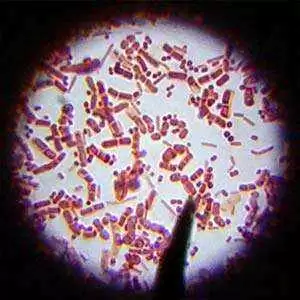Celiac.com 10/30/2003 – A Dutch research team has identified the specific regions of chromosome 19 that contribute to celiac disease. Despite its well-known association with human leukocyte antigen (HLA)-DQ2 and DQ8, the pathogenesis of celiac disease has remained largely unknown. The team studied 82 Dutch families who met strict diagnostic criteria which included biopsies that presented Marsh III lesions. The 216 independent celiac disease patients were compared to 216 age and sex-matched controls.
Celiac.com Sponsor (A12):
As expected the study found significant linkage to the suspected HLA region, but more importantly found additional, previously unknown and significant linkages at 19p13.1 (with a peak at marker D19S899), and at 6q21-22, which is ~70 cm downstream from the HLA region in question. The researchers conclude: "Significant linkage of celiac disease to chromosome region 19p13.1 was detected in our genome-wide screen. These results were confirmed by the association of D19S899 to celiac disease in an independent case-control cohort. Furthermore, we identified a possible second celiac disease locus on chromosome region 6q21-22."
The study was dedicated to the memory of Lodewijk Sandkuijl (1953-2002), who died shortly after its completion. He was an inspiration to the researchers and was a world expert on biostatistics.







Recommended Comments
There are no comments to display.